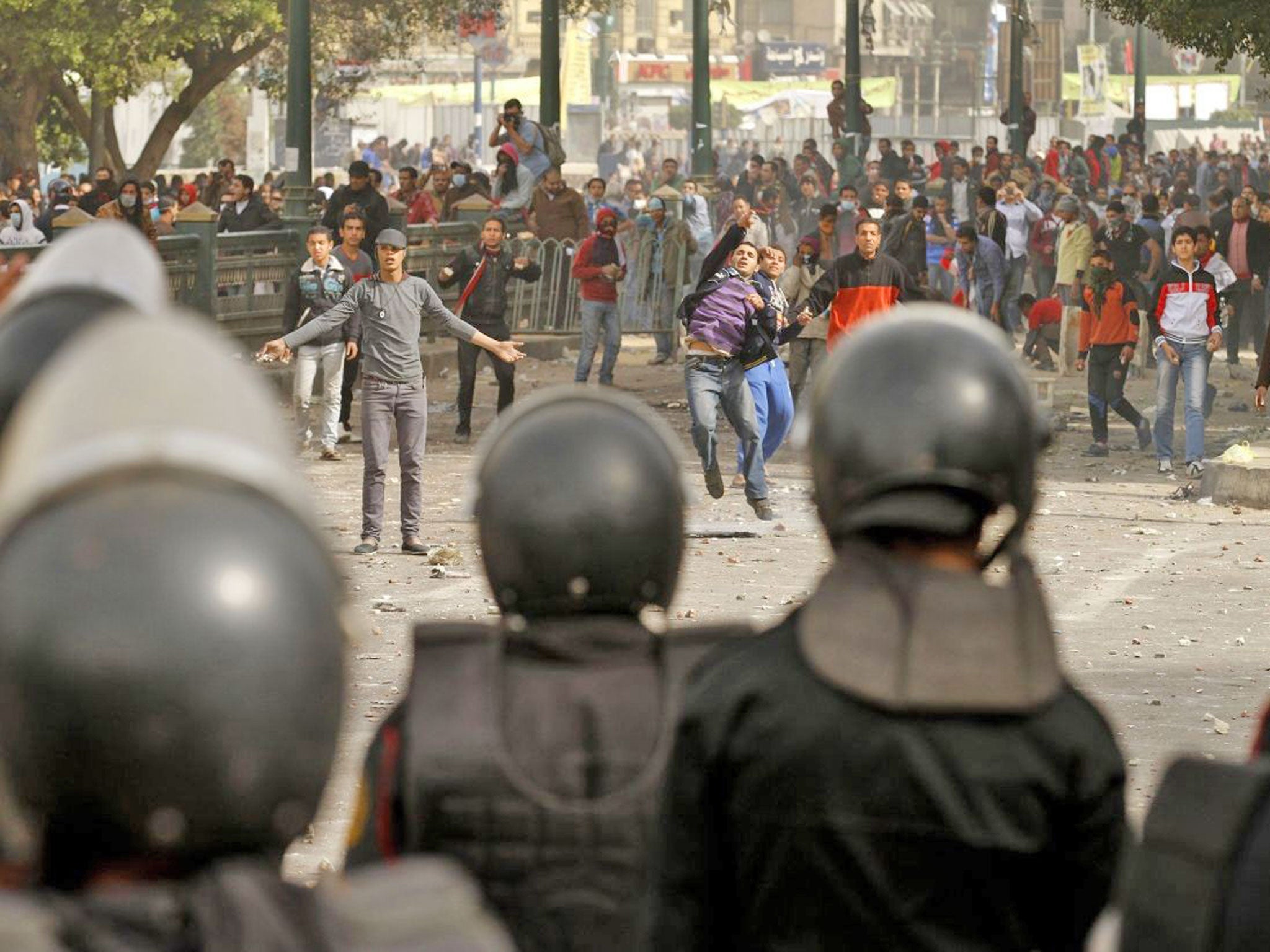Death toll rises as gun battles rage in Egypt
Alastair Beach in Port Said is witness to further violence as the unrest escalates

The streets of Port Said were convulsed by gun battles tonight as groups of civilians, some using Kalashnikov machine guns, launched attacks on police stations and an army club.
At least seven people were killed and more than 400 injured during the violence in the city in Egypt’s north east, which began when security forces launched an unprovoked attack on tens of thousands of mourners as they carried the coffins of 33 protesters who were killed during clashes on Saturday.
Machine guns could be heard rattling throughout the centre of the city, as police holed up in one of the main stations exchanged fire with protesters among the gloomy, shuttered-up streets.
Hundreds of civilians, many of whom had been caught up in the earlier attack, were sheltering in side roads as they tried to avoid ricocheting bullets.
Further north, close to the Mediterranean beachfront, black smoke continued to pour into the evening sky from an army club which had been torched by protesters earlier in the day.
It was here just before 1pm that the funeral procession had first come under attack. As tens of thousands of people marched towards the city's main graveyard, tear gas canisters began exploding outside the army club's gates.
It was not immediately clear who initiated the attack, but members of Egypt's central security forces – who routinely launch gas at protesters during civil unrest – were stationed in a nearby compound further west along the road.
Spluttering men and women staggered away from the club and into a side-street. As the procession was re-routed, one middle-aged woman handed out chunks of onion to help mourners combat the effects of gas.
"I've never known anything like this to happen in Egypt before," said Mahmoud Tito, a 20-year-old customs worker who was caught up in the attack. "I never thought the police would attack a funeral".
After finally arriving at the graveyard and burying the dead, the mood among mourners turned from disbelief to anger.
Returning to the army club, groups of young men broke into the compound and torched two of the buildings.
At the police club further along the road, where tear gas canisters were raining down from 100 yards inside the compound, gangs of youths set fire to a third building, sending an enormous plume of charcoal-black smoke into the air.
One protester, wielding a Kalashnikov machine gun, then darted sideways across the deserted main road, unleashing a burst of automatic fire at the police club as he ran. Shortly afterwards another young man took aim using what appeared to be a homemade handgun.
The funeral procession took place after 33 protesters were killed during a previous outbreak of rioting on Saturday.
Locals had tried to storm a prison holding football supporters condemned to death for their role in last year's Port Said stadium disaster, in which 74 fans died.
Many in the city believe that the suspects, who were sentenced on Saturday, are the victims of a political show trial – a view fueled by the fact that all of the security officials also accused of complicity had their verdicts postponed.
In Cairo, meanwhile, police fired teargas at dozens of stone-throwing protesters in a fourth day of clashes over what demonstrators there and in other cities say is a power grab by Islamists two years after Hosni Mubarak was overthrown.
The protesters accuse the new president Mohammad Morsi, elected in June with the support of his Muslim Brotherhood group, of betraying the democratic goals of the revolution.
Analysts say the fighting in Port Said and protests in other parts of the country are a symbol of a deep frustration among many Egyptians over Morsi’s rule.
“These protests are not just about Port Said – there is a crisis of authority in Egypt,” said Fawaz Gerges, Professor of Middle East Politics and International Relations at the LSE.
“If the current social and economic problems remain, it could be hugely problematic for Morsi – ultimately he will live or die on whether he can deliver jobs and other reforms. If he can’t, Egypt risks being plunged into huge crisis and turmoil.”
Subscribe to Independent Premium to bookmark this article
Want to bookmark your favourite articles and stories to read or reference later? Start your Independent Premium subscription today.

Join our commenting forum
Join thought-provoking conversations, follow other Independent readers and see their replies